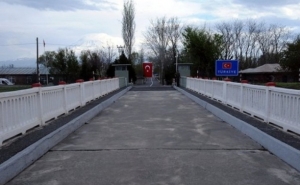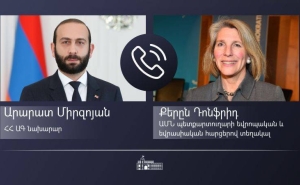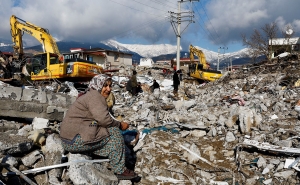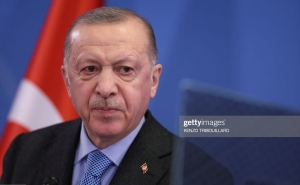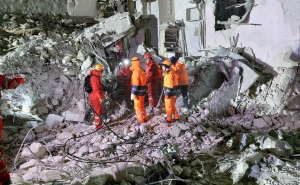Raqqa's Liberation: Turkey and the United States Have Appeared in a Deadlock
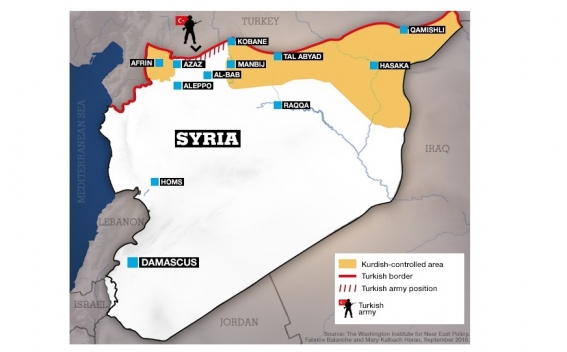
Erdogan did not exclude that Turkey could launch a new large-scale military operation in the north of Syria. "Now the negative processes are taking place in Syria. If it results in a threat to our borders, we will respond in the same way as during the "Euphrates Shield"," Erdogan said, clarifying that it is not just so much about the terrorist threat by ISIS, but about PKK. "Turkey will not allow the establishment of a Kurdish state," Erdogan said.
It should be recalled, that the official goal of Turkey's "Euphrates Shield" operation in Syria from August 2016 to March 2017 was to neutralize the terrorist threat by ISIS for Gaziantep, the Turkish province, but in practice it aimed to stop the advancement of the Kurds in northern Syria, near the Turkish border. As a result of the "Euphrates Shield," Turkey established its control over the area of about 3,000 square kilometers in the north of Syria, including the cities of Jarablus and El-Bab.
Within the framework of the "Euphrates Shield," Turkey also planned the liberation of the city of Manbij from the Kurdish forces and the establishment of control over Raqqa, which Ankara thinks will completely neutralize the Kurdish threat. However, these Turkish plans were prevented by ally US, which took Raqqa’s liberation mission in its hands. In this regard, the US is actively cooperating with the Kurdish forces, which naturally does not like Turkey. Official Ankara has repeatedly raised this issue, but Washington does not pay particular attention to Ankara's dissatisfaction.
It should be noted that the liberation of Raqqa is not only of strategic importance, buthas also moral and psychological importance. The party liberating the capital city of "Islamic State" will be presented to the world as the most effective anti-terrorist actor in Syria, claiming to receive more dividends during the negotiations. In this context, the US "gratitude" to Kurds can also be expressed by the support of the political ambitions of Kurds, in particular, with the political support of the establishment of a Kurdish state in the north of Syria. Ankara views it as a threat to its national security (Ankara is sure that the creation of a Kurdish state in the north of Syria can become a signal for Turkish Kurds to activate the national liberation struggle).
Most likely, Erdogan warns Washington of the possibility of launching a new operation to liberate Raqqa and Manbij, sending a message to Washington to stop the cooperation with Kurds. It is interesting that Erdogan made this statements ahead of the G-20 meeting in Hamburg. This summit will be a good opportunity for some of the major foreign actors involved in the Syrian conflict to agree on the interests of each other in Syria. In the absence of such an agreement, however, it can not be ruled out that Erdogan's statements on the launch of a new military operation in Syria may become a reality (it should be noted that in spite of the "Euphrates Shield" operation, Turkish troops continue to stay in Syria). At the same time, the Trump administration is trying to regain its reputation which it had lost in the recent months on the background of Russian successes in Syria and will not give up the idea for the implementation of which, however, Kurdish support is needed.
Thus it turns out that two US strategic allies are fighting against each other in Raqqa. In order to get out of this deadlock, Washington will have to provide Turkey with convincing guarantees that it will not cooperate with the Kurds after Raqqa's liberation.
Other materials on this subject
- Turkey Is Ready For a New Military Operation in Northern Syria Kalyn said. He also added that in the event of a threat, ''an assessment will be made and everything necessary will be done.''
- Russia, Iran and Turkey Discussed the Turkish Operation in Syria Russian side tried to convince Ankara to solve the problem by peaceful means, without resorting to violence.
- US Forces in Syria Attacked after Air rRids on Armed Groups Iran-backed armed groups had earlier promised to retaliate after the US launched several air raids on the groups in Iraq and Syria on Sunday.
- Syria: Assad's Baath Party Wins Majority in Parliamentary Polls More than 7,000 polling stations were set up across government-controlled parts of the country. Voting also took place in former opposition-held areas for the time since government forces retook much of...
- Russia, China Veto U.N. Approval of Aid Deliveries to Syria from Turkey The Security Council will now vote on a rival Russian text that would only approve one Turkish crossing for aid access for six months. During the coronavirus pandemic the council has been operating virtually,...
-
 17:08
17:08The regular session of the Anti-corruption Policy Council takes place in Jermuk
-
 15:05
15:05The Prime Minister sends congratulatory messages to the supreme leader of Iran and the President of Iran
-
 11:11
11:11Armenia sends earthquake aid to Turkey
-
 10:43
10:43Commemoration of the Pontiff St. Sahak Partev
-
 09:16
09:16Some roads are closed and difficult to pass in Armenia
-
 19:55
19:55Phone conversation of the Foreign Minister of Armenia with the U.S. Assistant Secretary of State for European and Eurasian Affairs
-
 18:30
18:30Prime Minister Pashinyan and President Khachaturyan meet
-
 18:20
18:20Ararat Mirzoyan with Co-Chairman of the OSCE Minsk Group of France Brice Roquefeuil
-
 17:01
17:01Humans could land on Mars within 10 years, Musk predicts
-
 16:45
16:45France, US urge 'immediate' end to Nagorno Karabakh blockade
-
 16:01
16:01Blockaded Nagorno Karabakh launches fundraiser to support quake-hit Syria
-
 15:59
15:59Earthquake death toll in Turkey rises to 18,342
-
 15:43
15:43Ararat Mirzoyan Held a Telephone Conversation with Sergey Lavrov
-
 15:06
15:06French president rules out fighter jet supplies to Ukraine in near future
-
 14:47
14:475 Day Weather Forecast in Armenia
-
 14:44
14:44President Vahagn Khachaturyan wrote a note in the book of condolences opened in the Embassy of Syria in Armenia
-
 14:20
14:20Azerbaijan’s provocations impede establishment of peace and stability – Armenian FM tells Russian Co-Chair of OSCE MG
-
 12:57
12:57France representation to OSCE: Paris calls on Azerbaijan to restore freedom of movement through Lachin corridor
-
 11:40
11:40Command of Kosovo forces highly appreciated preparation of Armenian peacekeepers
-
 10:16
10:16The United States withdrew from sanctions against Syria for six months the provision of assistance after the earthquake
day
week
month
Humidity: %
Wind: km/h


